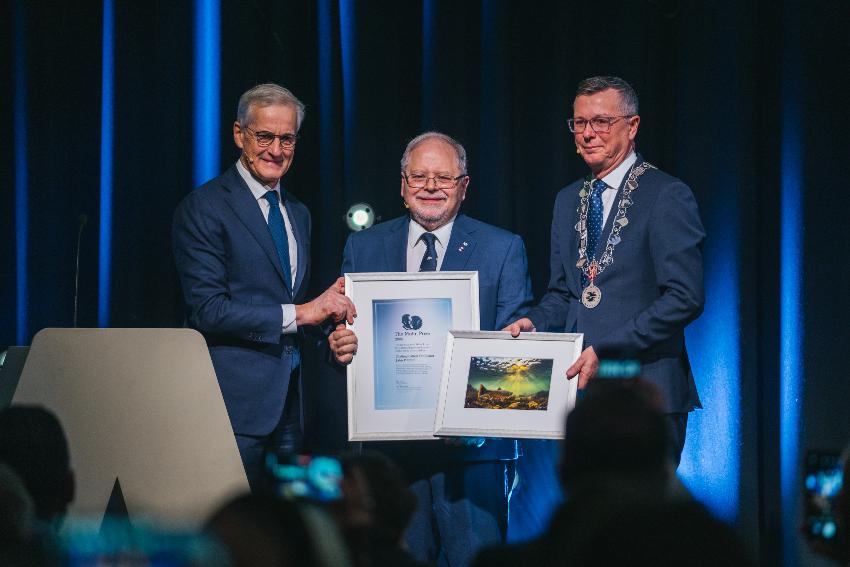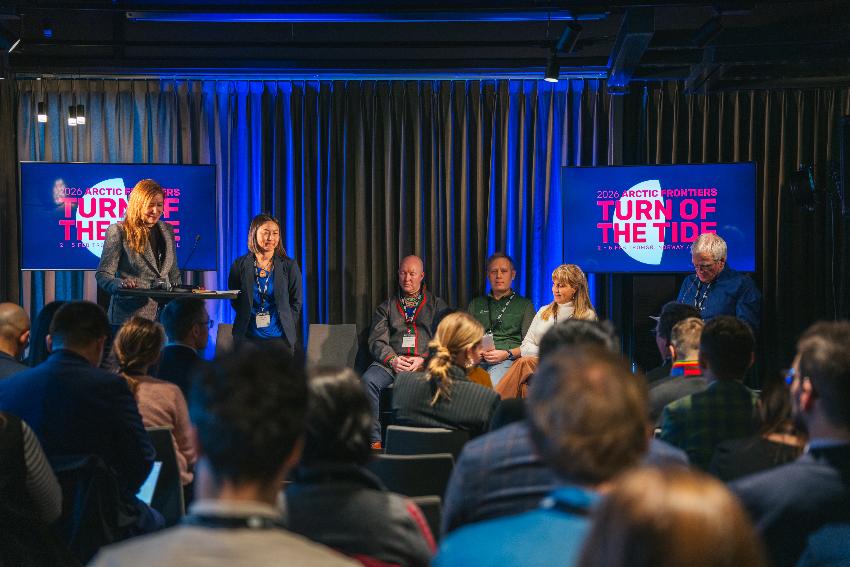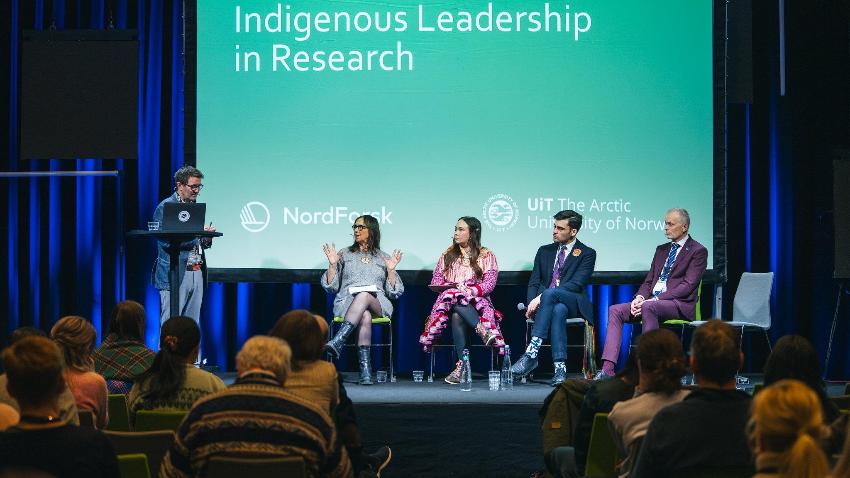New forum for Nordic university collaboration in the Arctic
The Arctic regions of Norway, Sweden, and Finland are now facing significant challenges related to the development of total defence and green transition. In April, a new forum for will be established to highlight how universities in the three countries can contribute with new solutions.

Climate change and geopolitical tensions are factors that are creating increasing uncertainty in the northern regions. Such threats can impact defence capabilities, communication, energy supply, transport, or the level of food security.
According to Jan-Gunnar Winther, Pro-rector for Research and Development at UiT The Arctic University of Norway, there are, however, some reliable strategies that can help reduce these uncertainties.
New forum for Nordic university collaboration
- The Arctic Six, is establishing a new forum on Arctic security.
- The name is Forum on Arctic Security: Total Defence in the Arctic Regions of Finland, Sweden, and Norway – Perspectives from the Northern Areas.
- The first forum will be held at UiT in Tromsø on 28 April 2025.
- Researchers, politicians, and key stakeholders from politics, as well as the defence, technology, and business sectors from Norway, Sweden, and Finland, will gather to discuss the societal challenges facing these countries.
- During the forum, there will also be a ceremony to mark UiT taking over the leadership of The Arctic Six.
"In the new security situation, the entire society must mobilise. Universities play an important role in preparedness because knowledge is needed across the board when building resilient communities. This can range from strengthening food security and addressing the impacts of climate change on critical infrastructure to high-tech solutions that can be used militarily, such as drones," says Winther.
Winther believes it is crucial to accelerate the facilitation of close, interdisciplinary, and cross-sectoral collaboration across the borders of NATO countries Finland, Sweden, and Norway.
"This is where The Arctic Six comes in as an established and strong alliance that can make important contributions to total preparedness," emphasises Winther.
The Arctic Six is an alliance of six universities in Norway, Sweden, and Finland that funds PhD candidates and researchers (The Arctic Six Chairs and Fellows) who develop new projects related to research, innovation, and education.
There is a great need to develop the Arctic regions of Norway, Sweden, and Finland as one cohesive and more interconnected region.
These projects involve both the business sector and public sector, which, through the concept of The Arctic Six Extended, are connected in clusters to develop new solutions for both the green transition and total preparedness in the northern regions.
"We are in the initial phase of establishing collaboration with business clusters on the Norwegian, Swedish, and Finnish sides. In Norway, we are in dialogue with the cluster Energi i nord. The vision is to connect at least three business clusters from the three countries with the university alliance The Arctic Six. This could become a strong platform for launching both green projects and collaborations between academia and private industry," notes Winther.
New security forum
How cross-border collaboration can create positive ripple effects, both locally and regionally, will be discussed at the Forum for Arctic Security, which will be held at UiT's campus in Tromsø on 28 April.
Renowned researchers, politicians, and key stakeholders from politics, as well as the defence, technology, and business sectors, will shed light on how we can address the challenges facing the northern regions.
Facts about The Arctic Six
- The alliance consists of UiT, Nord University, Luleå University of Technology, Umeå University, the University of Oulu, and the University of Lapland.
- Together, the universities have 10,000 researchers and 100,000 students.
- They collaborate on education, research, and innovation to contribute to the development of the Arctic as a sustainable region.
- Businesses and industries in the three countries work closely with The Arctic Six universities.
- The Arctic Six also serves as a regional centre for the international UArctic network.
Security and resilience are two key concepts for the forum's programme. These are broad terms that refer to the extent to which a society is stable, safe, or capable of managing potential threats and risk factors.
"Military capacity is, of course, crucial for a society's security, but with today's hybrid threat landscape, a range of other areas affecting civil society will make important contributions to total preparedness. For individuals, this could involve vigilance and private emergency stockpiles," says Winther.
In Winther's view, robust and interconnected supply lines related to transport, communication, and energy in the Nordic region will lead to increased resilience.
"As is well known, the north-south axes are much better developed than the east-west axes, and there is a great need to develop the Arctic regions of Norway, Sweden, and Finland as one cohesive and more interconnected region," concludes Winther.
At the forum to be held in April, the extent to which the Arctic regions in the three neighbouring countries are characterised by resilience or vulnerability will be examined.
The forum will also address how universities in The Arctic Six alliance can contribute knowledge-based solutions for strengthening areas such as cybersecurity, communication, and infrastructure.
Would you like to attend the forum?
You can register as a participant here.
The programme for the forum can be found here.
Kortnytt fra International Cooperation Section, The University Library, Centre for Peace Studies (CPS), Department of Social Sciences, Department of Technology and Safety
-
Fiskeri- og havbruksvitenskap - bachelor
Varighet: 3 År -
Fiskeri- og havbruksvitenskap - master
Varighet: 2 År -
Akvamedisin - master
Varighet: 5 År -
Arkeologi - master
Varighet: 2 År -
Peace and Conflict Transformation - master
Varighet: 2 År -
Computer Science - master
Varighet: 2 År -
Geosciences - master
Varighet: 2 År -
Biology - master
Varighet: 2 År -
Technology and Safety - master
Varighet: 2 År -
Physics - master
Varighet: 2 År -
Law of the Sea - master
Varighet: 3 Semestre -
Biologi - bachelor
Varighet: 3 År -
Nordisk - årsstudium
Varighet: 1 År -
Historie - årsstudium
Varighet: 1 År -
Luftfartsfag - bachelor
Varighet: 3 År -
Pedagogikk - bachelor
Varighet: 3 År -
Arkeologi - bachelor
Varighet: 3 År -
Pedagogikk - master
Varighet: 2 År -
Informatikk, datamaskinsystemer - bachelor
Varighet: 3 År -
Informatikk, sivilingeniør - master
Varighet: 5 År -
Allmenn litteraturvitenskap - årsstudium
Varighet: 1 År -
Likestilling og kjønn - årsstudium
Varighet: 1 År -
Historie - bachelor
Varighet: 3 År -
Geovitenskap- bachelor
Varighet: 3 År -
Samfunnssikkerhet - bachelor
Varighet: 3 År -
Samfunnssikkerhet - master
Varighet: 2 År -
Kunst - bachelor
Varighet: 3 År -
Kunsthistorie - master
Varighet: 2 År -
Farmasi - master
Varighet: 2 År -
Religionsvitenskap - årsstudium
Varighet: 1 År -
Romfysikk, sivilingeniør - master
Varighet: 5 År -
Sosialantropologi - bachelor
Varighet: 3 År -
Bærekraftig teknologi, ingeniør - bachelor
Varighet: 3 År -
Historie - master
Varighet: 2 År -
Filosofi - bachelor
Varighet: 3 År -
Anvendt fysikk og matematikk, sivilingeniør - master
Varighet: 5 År -
Barnevernsarbeid - master
Varighet: 2 År -
Forfatterstudium 2 - årsstudium
Varighet: 1 År -
Fine Art - master
Varighet: 2 År -
Barnevern - bachelor
Varighet: 3 År -
Arctic Nature Guide - one year programme
Varighet: 1 År -
Sosialt arbeid - bachelor
Varighet: 3 År -
Arktisk friluftsliv og naturguiding - bachelor
Varighet: 3 År -
Arktisk friluftsliv - årsstudium
Varighet: 1 År -
Grunnskolelærerutdanning for 1.-7. trinn - master
Varighet: 5 År -
Kunsthistorie - årsstudium
Varighet: 1 År -
Governance and Entrepreneurship in Northern and Indigenous Areas - master
Varighet: 4 År -
Vernepleie - bachelor
Varighet: 3 År -
Internasjonal beredskap - bachelor
Varighet: 3 År -
Barnevern - bachelor
Varighet: 3 År



